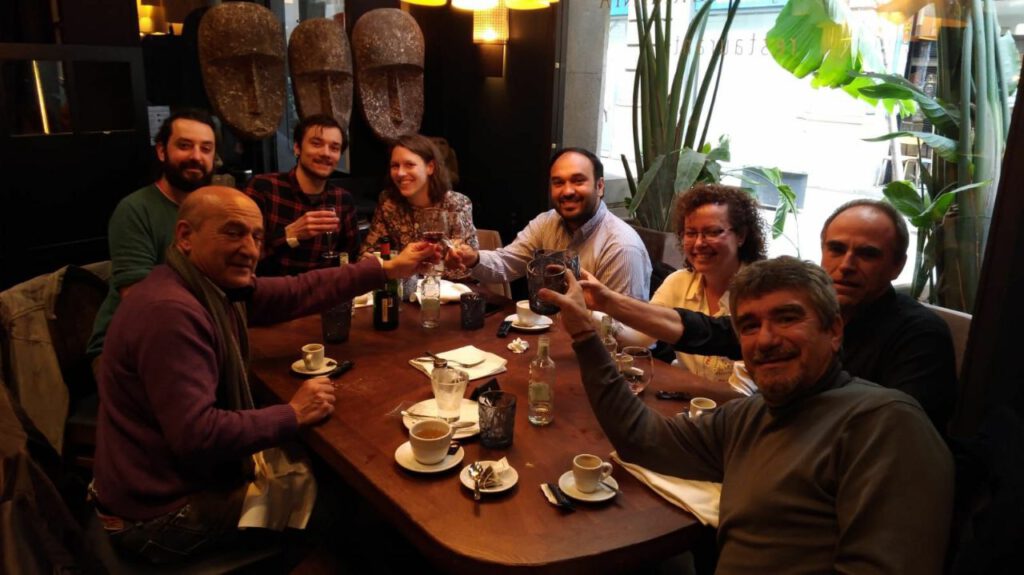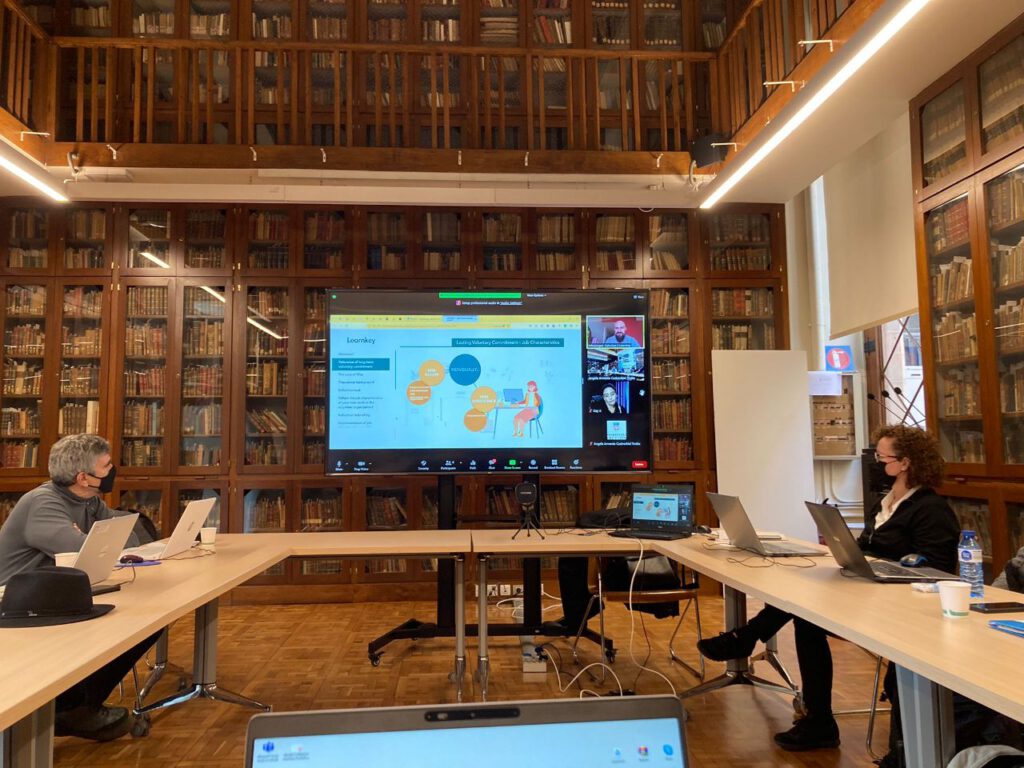
Our second transnational meeting of the PSYCLIC project took place in Barcelona, the capital and largest city of Catalonia in the northeast of Spain, next to the coast. This meeting was mainly dedicated to showing, discussing, and revising the e-learning contents that have been developed so far by the partner universities of Saarland University, the University of Groningen, and the University of Barcelona. Partners have elaborated drafts for the content throughout the last half year. Partners met at the University of Barcelona, a historical place with stunning and beautiful architecture.
In-depth discussions and the exchange of expertise from the different partners helped a lot to create a joint mental model of the courses’ overall aims, structure, and content focus. Various presentations from each partner about their psychological viewpoint showed how complex and challenging the field of climate change psychology is, therefore highlighting again the need for a multi-perspective approach from different disciplines of psychology. The question of how to create behavioral change towards more pro-environmental actions is even for modern, scientific psychology a hard question to answer, as there is no simple answer. However, all partners have proven that knowledge about environmental, social, and organizational psychology can be applied in this new emerging field, and theories as well as practical training approaches can be developed based on the relevant literature.
Thus, a major step forward could be made in order to generate a solid base for the e-learning. UAB Learnkey consulted all partners on how to develop e-learning methods that can be used to ensure that the contents that have been developed match perfectly with the user-friendliness of the course. Animations, quizzes, drag-and-drop exercises, and a bunch of other methods would ensure that students who participated in the course will also have a joyful and fun experience while learning about the newest and most relevant theories in the domain of climate change psychology. All in all, the partners could develop a further strategy on how to operate in the next month until the next transnational meeting.

Besides their good collaboration, partners indeed enjoyed the city and cultural experience of Barcelona. Eventually, the partners from the University of Barcelona were great tour guides, who could explain the city’s structure and composition from the viewpoint of environmental psychology. We all enjoyed a great trip and time in Barcelona and are looking forward to continuing the great collaboration. The next transnational meeting is planned for the 8th and 9th of September.